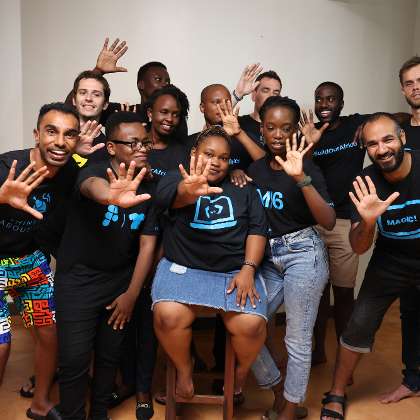Nala, a remittance startup broadening its portfolio with a new B2B payments platform, has secured $40 million in equity, marking one of the largest Series A transactions in Africa
Acrew Capital, a San Francisco-based venture capital firm, led the oversubscribed round, including DST Global, Norrsken22, HOF Capital, and existing investors Amplo and NYCA Partners.
Fintech founders Ryan King of Chime, Vlad Tenev of Robinhood, and a number of angel investors also made investments.
The company’s global growth plans, which involve scaling its remittance business to service the Asian and Latin America markets, will be fueled by the new capital injection, which follows a $10 million seed in 2022, according to Nala founder and CEO Benjamin Fernandes, as reported by TechCrunch.

Currently, Nala enables E.U., U.K., and U.S. individuals to send money across 249 institutions and 26 mobile money services in 11 markets across Africa through its consumer app.
Nala has integrated with mobile money services such as Kenya’s M-Pesa, allowing remitters to pay expenses directly into local mobile wallets.
According to Fernandes, the decision to incorporate payment capabilities was motivated by user requests to access their finances from all angles. FinTech intends to expand these offerings to the anticipated new markets, commencing with Asia.
Nala is also increasing its investment in its B2B payments infrastructure, which was introduced in March to assist global businesses in transferring funds into and out of Africa.
“Nala is at a critical juncture with this $40 million funding round.” It will allow us to expand our reach beyond Africa and transcend remittances, establishing a resilient payments ecosystem.
We are reinvesting this money to improve our infrastructure, guaranteeing that all payments are predictable and inexpensive. We are not merely discussing change but actively implementing it by introducing our payment rails and expanding our B2B platform, Rafiki.
Fernandes stated, “We have some ambitious, bold plans; please allow us a few years.”
In 2017, Fernandes established Nala to provide local money transfers in Tanzania. However, in 2021, the company redirected its focus to facilitate foreign remittances.
Rafiki, the new B2B platform from the startup, also serves as the foundation for Nala’s consumer application.

In a previous interview with TechCrunch, Fernandes stated that the company had chosen to construct the payments infrastructure to ensure the reliability of its remittance services and to provide dependable services to global businesses.
Nala asserts that it can ensure the availability of its consumer service through Rafiki, which is directly integrated with banks and mobile money providers.
Additionally, the company’s consumer application is more competitive due to its own payment infrastructure, resulting in lower user fees.
Fernandes stated that the startup’s consumer business has experienced significant growth, with service delivery as the driving force behind its current revenues exceeding 90%. He said that Nala is currently on the verge of surpassing 500,000 customers and has already achieved profitability.
The payments platform is also expanding its clientele, with early adopters such as the U.K.-based fintech TransferGo, which utilizes Rafiki for Africa disbursements.
“Live customers on Nala for Rafiki include global payroll providers like Cadana, global remittance companies like TransferGo, and global banks that conduct cross-border payments. “The objective is to facilitate cross-border payments for financial institutions and services,” stated Fernandes.
Opportunities in the remittance sector
Following the World Bank’s forecast of robust development in the remittance sector this year, Nala intends to expand its services to other emerging markets, including Asia and Latin America.
Remittance flows to sub-Saharan Africa are anticipated to increase by 1.5% in 2024, following a minor decline in 2023 when they reached $54 billion, according to the Migration and Development Brief published by the World Bank.
East Asia and the Pacific (excluding China), South Asia, Latin America, and the Caribbean are also anticipated to experience growth. This expansion implies that the demand for remittance services will endure.
“The market in India is expanding due to the additional departures, and migrants send more than $125 billion annually.” This generates opportunities for the service of those consumers and the expansion of global trade between regions.
Fernandes stated that the Asian and African regions have been engaging in increased trade, and to facilitate this, money must be moved consistently.
The World Bank observes that the cost of transporting money across borders remains high as the demand for remittance support increases. For example, the global average cost of sending $200 was 6.4% of the total quantity.
Nevertheless, the cost of digital remittances was lower at 5% than that of non-digital remittances, which was 7%.
This supports the services offered by Nala and its counterparts, including Flutterwave. Nala asserts that the fundamental objective of their offering is to reduce the cost of money transfers.
Lauren Kolodny, the founding partner of Acrew, stated, “We are confident that Nala will be the leading provider of remittances for the next generation of Africans, who are projected to represent 35% of the global youth by 2050.”
She also stated that the team possesses “unique community building expertise, deep local knowledge, and fintech expertise” to construct the cross-border payment rails for the next billion.



